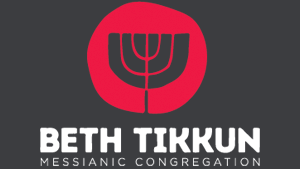Yom Kippur 2015
Join Beth Tikkun as we rehearse the work of the High Priest on Yom Kippur in the 1st century Jerusalem Temple. We once again encounter some amazing insights into what Yeshua accomplished for our redemption in these symbols and types.
NOTE: Grant mentions that a bull was used for the sin offering for priests and rulers. Actually, a goat was used for rulers and not a bull. A small correction, I know, but still one that needs to be made. – G.L.)
Visuals: (Due to copyright issues, not visuals are available for this teaching.)
Podcast: Play in new window | Download
Subscribe: Google Podcasts | Stitcher | TuneIn | RSS



3 Comments
by Bev
On September 23, 2015
Enjoyed this. Trying to determine if we are still to fast and “afflict our souls” since Yeshua has died/resurrected and we can know for certain that our names are in the Book. I feel that He has accomplished this for us. I just wish I was less confused on this one. You seem so down to earth in your teaching I thought I’d ask. If we are to fast then that’s what I want to do. Thanks so much. Hope to visit your congregation soon.
by L. Grant Luton
On September 26, 2015
Dear Bev, Having been raised in the Evangelical church, I understand your quandary. But we must remember that Yeshua did not redeem us so that we could ignore the Torah. In fact, Paul writes that “He condemned sin in the flesh, so that the righteous requirement of the Torah mights be fulfilled in us, who do not walk according tot eh flesh but according to the Spirit.” (Romans 8:3-4) Also, he writes: “Do we then nullify the Torah through faith? May it never be! On the contrary, we establish the Torah.” (Romans 3:31)Paul’s argument throughout his writings is that we cannot be redeemed by keeping the Torah; but having been redeemed, we are now equipped to meet God’s standard of righteousness as revealed in the Torah. Part of that standard is to be aware of our shortcomings and to repent of them. (Remember that the word ‘repent’ is applied much more frequently to believers than to nonbelievers.)
With that said, Zechariah (8:19) tells us that when the Kingdom is established, the nature of Yom Kippur will cease to be a day of fasting, and “will become joy, gladness, and cheerful feasts.”
The bottom line is this: Yeshua’s act of redemption was not for the purpose of excusing us from fulfilling God’s standard of righteousness. On the contrary, we are now empowered to live according to God’s righteous standard – the Torah – which is “holy and righteous and good” (Romans 7:12).
I hope this helps!
Shalom,
Grant L.
by Nathan S.
On September 23, 2015
Excellent sermon on Yom Kippur! It really illuminated my perception from just books and commentary into something more tangible and meaningful. Thanks for the awesome presentation and interpretation of Leviticus 16.
Tzom Kal!
Nathan